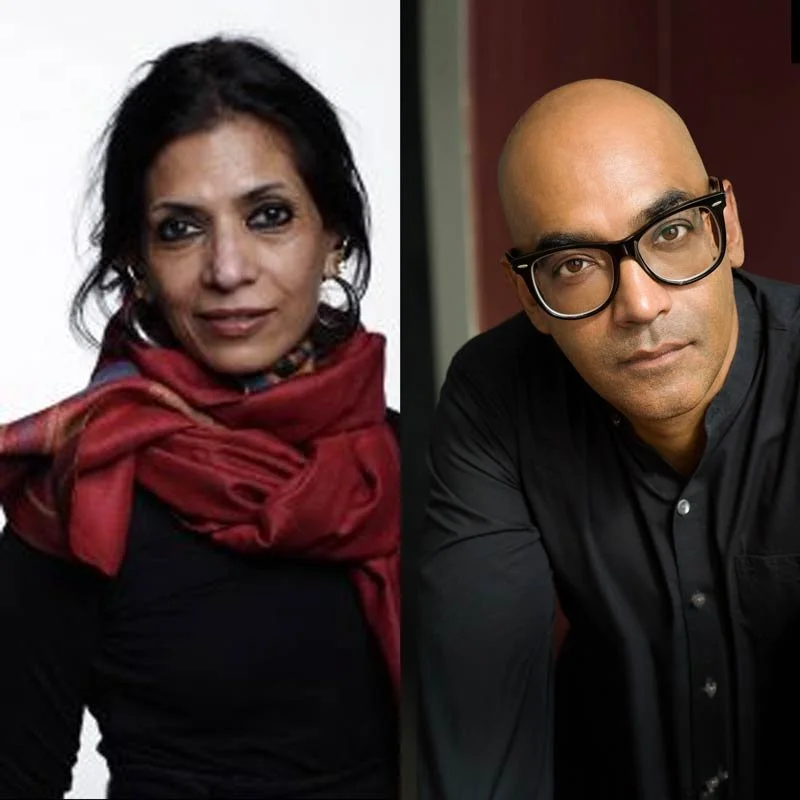Brian David Johnson is Futurist in Residence at Arizona State University’s Center for Science and the Imagination, a professor in the School for the Future of Innovation in Society, and the Director of the ASU Threatcasting Lab. He is Author of The Future You: How to Create the Life You Always Wanted, Science Fiction Prototyping: Designing the Future with Science Fiction, 21st Century Robot: The Dr. Simon Egerton Stories, Humanity in the Machine: What Comes After Greed?, Screen Future: The Future of Entertainment, Computing, and the Devices We Love.
BRIAN DAVID JOHNSON
Let's talk about technology and the role of humanity and the role of being human and what it means to be present in that. We need to keep humans at the center of everything that we do, that everything that we do in our life is about humans. It begins with humans and ends with humans. There might be technologies and businesses and all these things in between, but we should measure the effect on humans.
When I talk to people about artificial intelligence or technology, I'm generally asking them two questions. What are you optimizing for? What's the effect that you're trying to get? Developing technology for technology's sake, although it can be kind of interesting...then is why you're doing it because you think it's interesting? But then ultimately, if you're doing it beyond your own gratification, why are you doing it?
So much of what I do in that is talking to governments and militaries and large organizations to say we always have to keep humans in the loop. You have to keep humans in the center because it's about us. That really is incredibly important. And that's one of the central ideas in the future. The future should be about humans, and where are humans going. And what do we want as humans? And how are we using technology to make us more human, or healthier, or happier, or more productive?
*
I think, oftentimes, what'll happen as a trap when we talk about technology. People say, "Well, what do you think is the future of artificial intelligence? Or what is the future of neural interfaces? Or what is the future of this?" And I always pause them and say, "Wait a minute. If you're just talking about the technology, you're having the wrong conversation because it's not about the technology."
So when people talk about what's the future of AI? I say, I don't know. What do we want the future of AI to be? And I think that's a shift that sounds quite subtle to some people, but it's really important because if you look at any piece of news or anything like that, they talk about AI as if it was a thing that was fully formed, that sprang out of the Earth and is now walking around doing things. And what will AI do in the future and how will it affect our jobs? It's not AI that's doing it. These are people. These are companies. These are organizations that are doing it. And that's where we need to keep our focus. What are those organizations doing. And also what do we want from it as humans?
*
Being worried about the future is just that, it's worrying. Think about how much time and energy you spend worrying about stuff that hasn't happened, and maybe even never will. But what if you instead put all of your energy towards the creation of a positive and lasting future?
*
I think the most important thing that I would like young people to know is that they can build their future. That they have the power and they have the agency to shape their future and they have the ability and the power when working with others to have an even broader impact.
The thing that scares me the most about the future is when people give up that agency and they let other people design their futures for them. For me, I think it's incredibly powerful to go to young people and say you can do it. But also you need to tell me what you want. And I think empowering them to have a vision for the future, that's why I spend so much time in schools and talking to young people because it's those visions that I think are incredibly important.
This interview was conducted by Mia Funk and Melannie Munoz with the participation of collaborating universities and students. Associate Interviews Producers on this episode were Sophie Garnier and Melannie Munoz. The Creative Process is produced by Mia Funk. Additional production support by Katie Foster.
Mia Funk is an artist, interviewer and founder of The Creative Process & One Planet Podcast (Conversations about Climate Change & Environmental Solutions).




















































